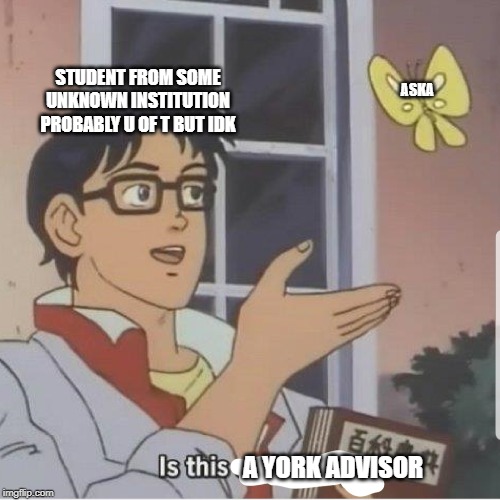hi, i have 4 courses right now and i really want to CR a course (i will pass thankfully). however, i don’t know how a CR will be considered by law schools, med schools and grad schools. if i don’t CR, i end with a C and while i know uoft med school drops your lowest 2 FCEs and uoft law school only looks at your best overall 3 years of undergraduate study, i don’t know their policy on CR on a transcript. i’d really like to avoid keeping the C if i can. please let me know. thank you.
hey there,
so it seems like you’re asking whether a CR on your transcript will impact your admission into grad schools. the thing is, each law school, med school, and grad school program may have a separate policy on this. so i think the best thing you can do is just reach out to the places you’re interested in and see what they say.
this is such a valid question, by the way. you probably scoured the internet trying to find an answer and came up empty handed, because so did i.

i did however, find a couple crumbs:
some places have FAQs where they may or may not answer this question. first, uoft med school and uoft law school FAQs both do mention CR/NCR grades, though only in the context of covid-19’s impacts in 2020. second, the law school has a page last updated in 2021 that says they consider a CR grade to be a successfully completed course, and that they “will not hold CR grades against an applicant”. but, keep in mind this in regards to academic grades during 2019-2020, so it might not be relevant anymore.
so you could absolutely contact admissions directly about this, and follow up about whether this is still true. their email is on that page, and i don’t think it would hurt to ask!

i’m sorry i don’t have a better answer, but i do think it’s best if you contact the grad schools directly. programs do change their policies, so i don’t want to tell you something wrong, especially with decisions that impact your future.
anyways, i hope everything works out for you, sending lots of encouragement!!
over and out,
aska








 <
so i took a solid chunk of time and thought this out, because initially it seemed highly unlikely to me that you'd be able to successfully get to know a prof who's teaching remotely. even before this pandemic, i'd taken a few online courses and found that each time without fail, the instructor remained a nameless faceless entity. do online instructors even exist?
<
so i took a solid chunk of time and thought this out, because initially it seemed highly unlikely to me that you'd be able to successfully get to know a prof who's teaching remotely. even before this pandemic, i'd taken a few online courses and found that each time without fail, the instructor remained a nameless faceless entity. do online instructors even exist?





















